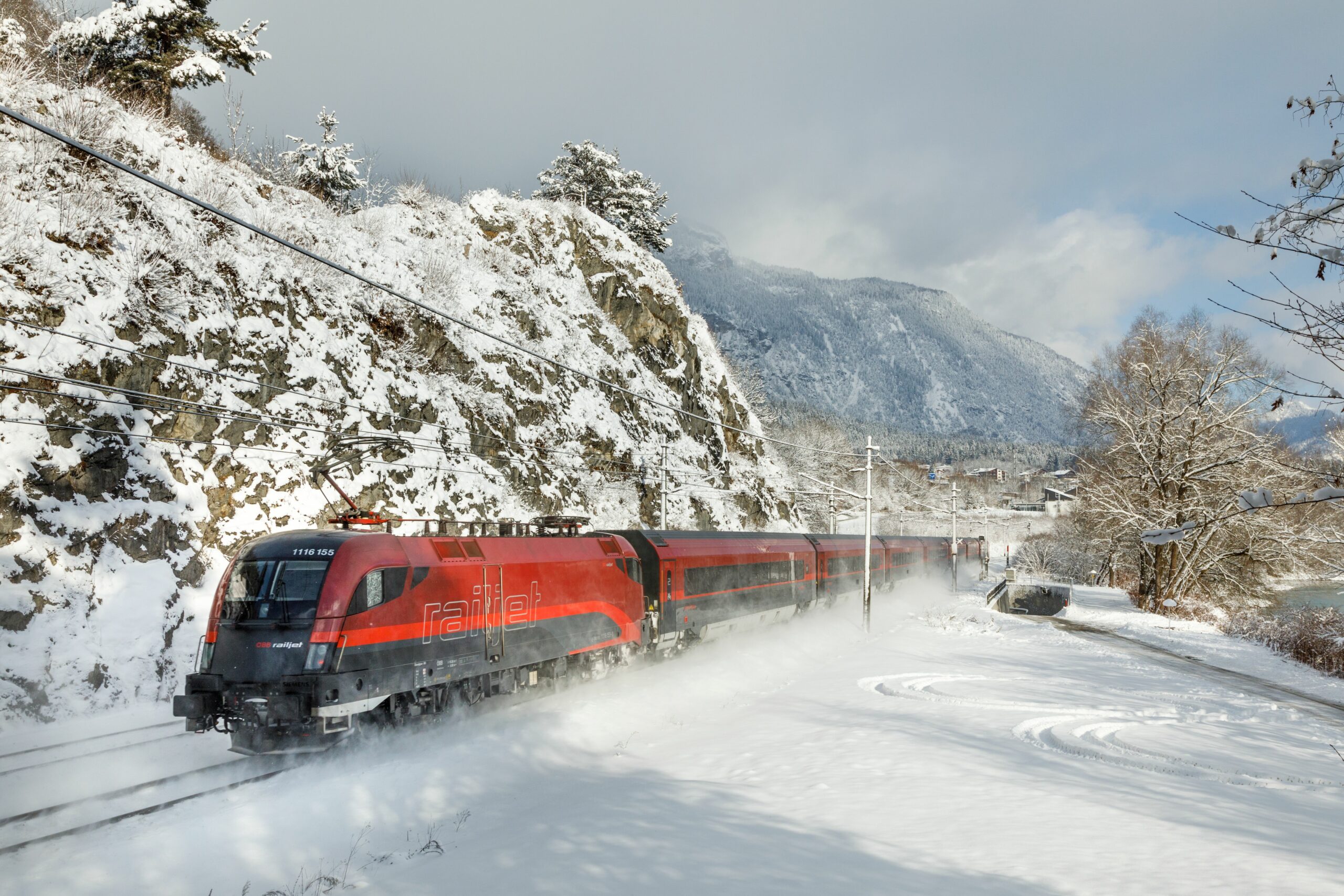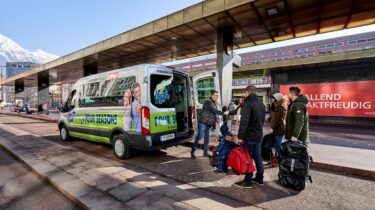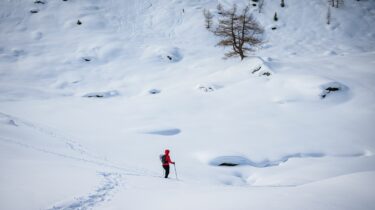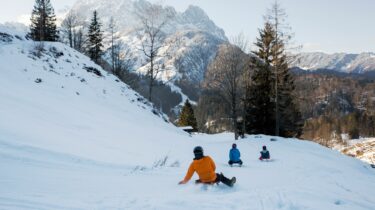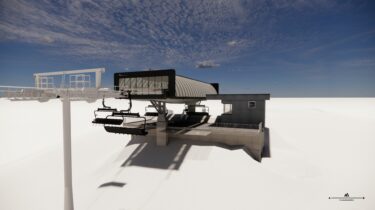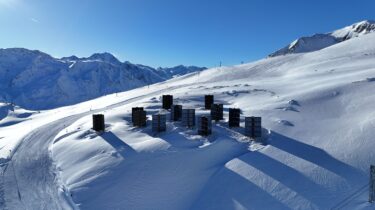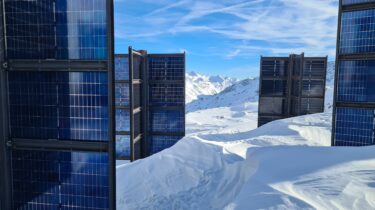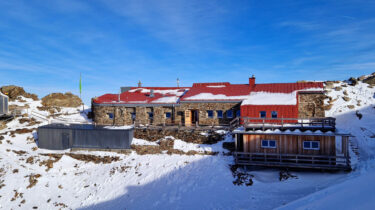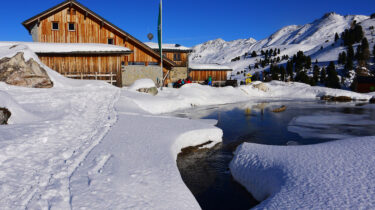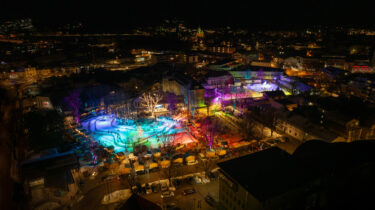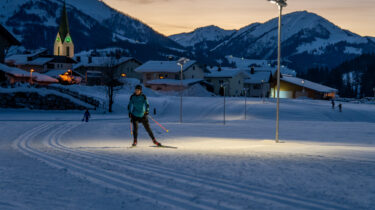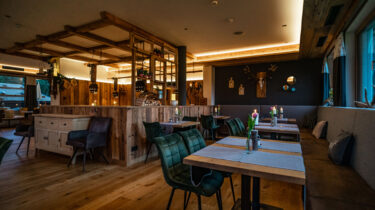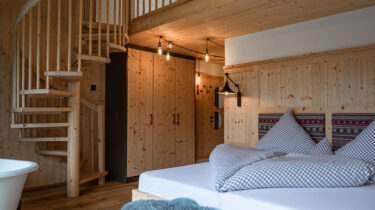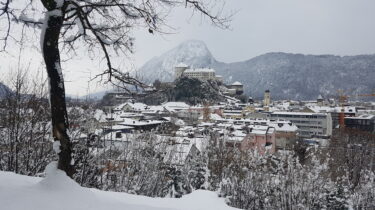Travel with a clear conscience: Sustainable winter holidays in Tirol
Last updated on 28.11.2024
Whether its travelling by public transport or winter activities with the best environmental credentials, finding destinations and accommodation with the ‘green seal of approval’, or restaurants serving regional fare, there is an ever-increasing range of options for those looking to spend an environmentally friendly holiday in Tirol.
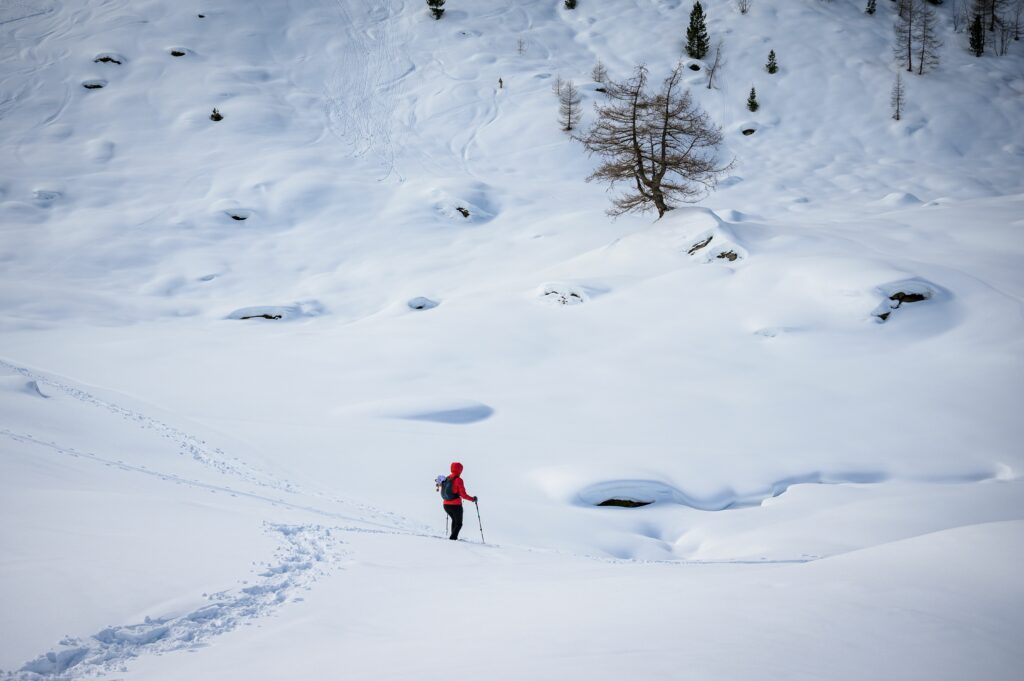
Resource-friendly journeys: environmentally friendly travel and local transport
Stress-free and comfortable travel without the hassle of sitting in traffic jams: Tirol has been promoting rail travel for many years in order to protect its living and recreational space and offers guests attractive day and night connections from numerous European countries. Holidaymakers can take advantage of quick and easy daily connections from all over Germany via the Munich rail hub, while the ÖBB (Austrian Rail) offers environmentally friendly and comfortable services several times a day from the east of Austria and Switzerland to Tirol. To serve this purpose, the latest Railjet express trains have been in operation since summer 2024, offering not only increased comfort and more privacy, but also barrier-free travel for people with disabilities. What’s more, the trains in Tirol are some of the most punctual throughout Austria.
Once arrived in Tirol, guests have a wide range of sustainable mobility options at their disposal. The bahnhofshuttle.tirol service transports travellers directly from the most frequented train stations in the country to their accommodation. Those who want to be flexible and environmentally friendly while travelling in Tirol can use the numerous bus connections provided by the Verkehrsverbund Tirol (VVT). Worth knowing: almost all regions in Tirol offer Guest Cards in winter, which allow their guests to use regional and local ski buses free of charge. Detailed information on travelling to Tirol and getting around once you’re there can be found at www.tyrol.com/arrival/by-train.
Mindful eating and sleeping: sustainable accommodation and destinations
Regional products, environmentally friendly transport and certified sustainable accommodation – are key criteria that regions must fulfil to receive the Austrian Environmental Destination Award. Kufsteinerland was recently honoured with this important accolade, becoming only the second region in Tirol to do so. Following in the footsteps of the Seefeld region, Kufsteinerland is now one of the leading sustainable tourism regions in Austria.
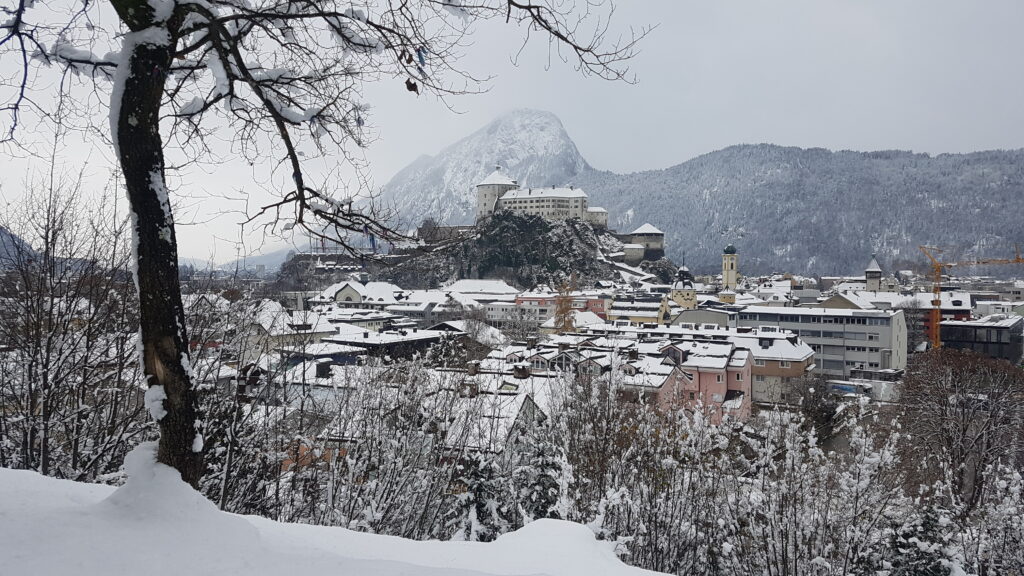
Not only Kufsteinerland, but also numerous accommodation providers throughout Tirol are becoming increasingly committed to sustainable tourism and have also been awarded the Austrian ‘Ecolabel’ environmental award. Recent additions include the Bio-Chalet Wagner in Niederndorf, which impresses with its sustainable wood and clay construction and is easily accessible without a car. After arrival, you can happily leave your car at home as there are farm shops, supermarkets, restaurants and romantic walks in the forest all in the immediate vicinity, which round off the authentic experience of nature. Tirolerherz in St. Ulrich am Pillersee, the Alpine Collection Aparthotel in Wildschönau and Hotel Karwendel in Leutasch have also received the coveted environmental award. Tirol now has over 80 environmentally certified accommodation providers – and that number is growing. You can find out more about these certified businesses at www.umweltzeichen.at/en/tourism/hotels.
The “Bewusst Tirol” (Conscious Tirol) project, by contrast, encompasses numerous hotels and businesses that have been certified as regionally aware and thus promote the use of local food in the Tirolean hotel and restaurant industry, while seeking to bolster collaborative efforts between tourism and the agricultural sector. Sustainable holidays can also be enjoyed at member farms of the “Holidays on the Farm” programme, where organic farms in particular focus on regionality and sustainability, as well as Alpine hosts where, for example, a regional breakfast is celebrated. What’s more, member establishments of the “Tiroler Wirtshäuser” (Tirolean Inns) association also consciously emphasise their strong focus on regionality in terms of food and suppliers.
There is also growing awareness of sustainable dining in Tirol’s mountain hut scene. Particularly noteworthy is the increasing range of vegetarian and vegan dishes, such as those at the Glungezer Hut, which pampers its guests with unique Nepalese-Italian fusion cuisine. Guests will find dishes such as ‘Spaghetti Kathmandu’ and ‘Nepalese Lentil Soup’ on the menu here, bringing a special culinary twist to the mountain fare. Lizumer Hut is nestled quietly amidst the Tux Alps and places particular emphasis on the use of regional and seasonal products: Lizumer Almkäse cheese, sun-ripened vegetables from traditional smallholdings and regional beverage specialities set the tone for the menu. Alongside traditional dishes, contemporary, light meals and wholesome vegetarian and vegan options also feature on the list of culinary delights. Tirolean huts therefore offer a wide selection of sustainable dishes not only for lovers of regional cuisine, but also for discerning gourmets and vegetarians.
Skiing with a clear conscience: respect for the environment
Ski resorts and lift companies are also becoming increasingly committed to resource-efficient operations in winter tourism. Every year, the Tirolean cable car companies invest heavily in modernising their facilities and the use of renewable energy.
An impressive example of sustainable innovation is provided by the SkiWelt Wilder Kaiser – Brixental, which is opening the new 8-seater Eibergbahn lift for the 2024/25 winter season. A key element of this project is the new 140 kWp photovoltaic system on the roof of the valley station, which can generate around 50 % of the annual energy requirement. This represents a further milestone for SkiWelt in its pursuit of energy efficiency and sets a powerful example for sustainable winter sports. Bergbahnen Sölden cable car operators have also adopted this strategy. With the help of innovative helioplants – vertical, double-sided photovoltaic systems that resemble trees – the lift company is able to generate a third of its own electricity requirements. These pioneering systems are not only visually impressive, they also make a significant contribution to reducing CO₂ emissions in the ski resort.
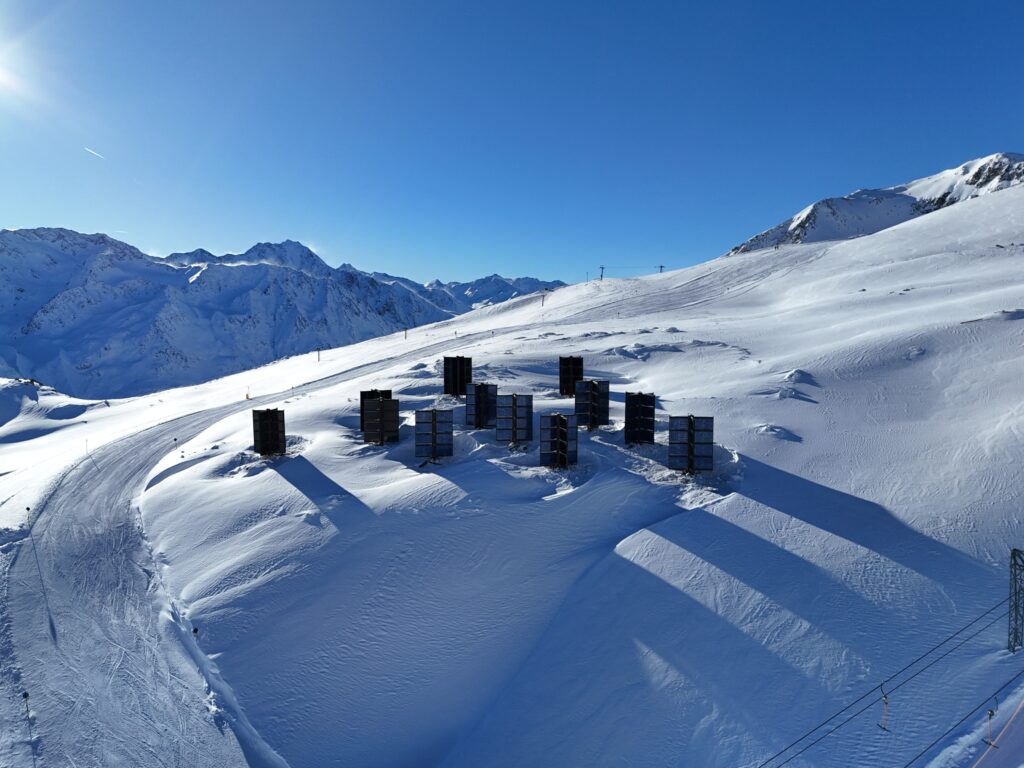
Gentle winter sports: alternatives away from the slopes
Tirolean winters are also sustainable and environmentally friendly away from the slopes and lifts. Whether snowshoeing through snow-covered forests, winter hiking to secluded vantage points or tobogganing with a stop for refreshments at a rustic mountain hut: it is easy to holiday in harmony with nature in Tirol and still enjoy all that winter has to offer. Many Tirolean regions have made a conscious decision to specialise in sustainable winter tourism and provide their guests with a range of nature-based activities.
Kartitsch is the place to go for a spot of winter hiking. As Austria’s first winter hiking village, guests can not only expect perfectly groomed winter hiking trails, but also guided tours several times a week. For holiday guests staying in one of the specialised winter hiking establishments, hiking poles, rucksack and seat mat are already included. This opportunity enables a relaxed and comfortable experience of nature, where the wintry mountain landscape of Osttirol (East Tirol) can be enjoyed in complete tranquillity.
A highlight awaits fans of Nordic sports in Hochfilzen in the PillerseeTal. The first autonomously solar-lit night trail invites you to an extraordinary cross-country skiing experience. Around 50 battery-backed photovoltaic panels ensure that the trail is illuminated for around four hours after dusk – and completely independently of external energy sources. This flagship project, undertaken by the Kitzbüheler Alpen – PillerseeTal tourism association, opens up a new dimension of sustainable cross-country skiing.
Reutte On Ice rink, which opened last year, is similarly worthy of mention. Here, locals and visitors can enjoy unrestricted skating fun at a facility where sustainability takes top priority:
the ice rink is operated using 100 % green electricity.
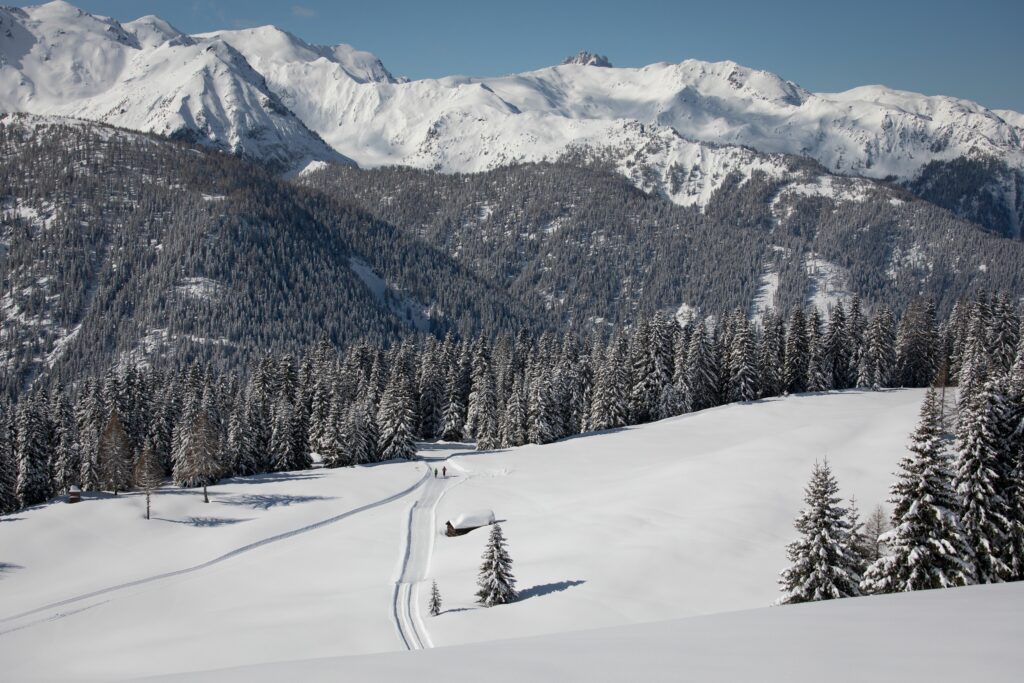
Visit www.tyrol.com/winter-holidays to find the best tips for regions and tours that will tempt you to try out some of the more gentle winter sports activities in the snow-covered
mountains of Tirol.

